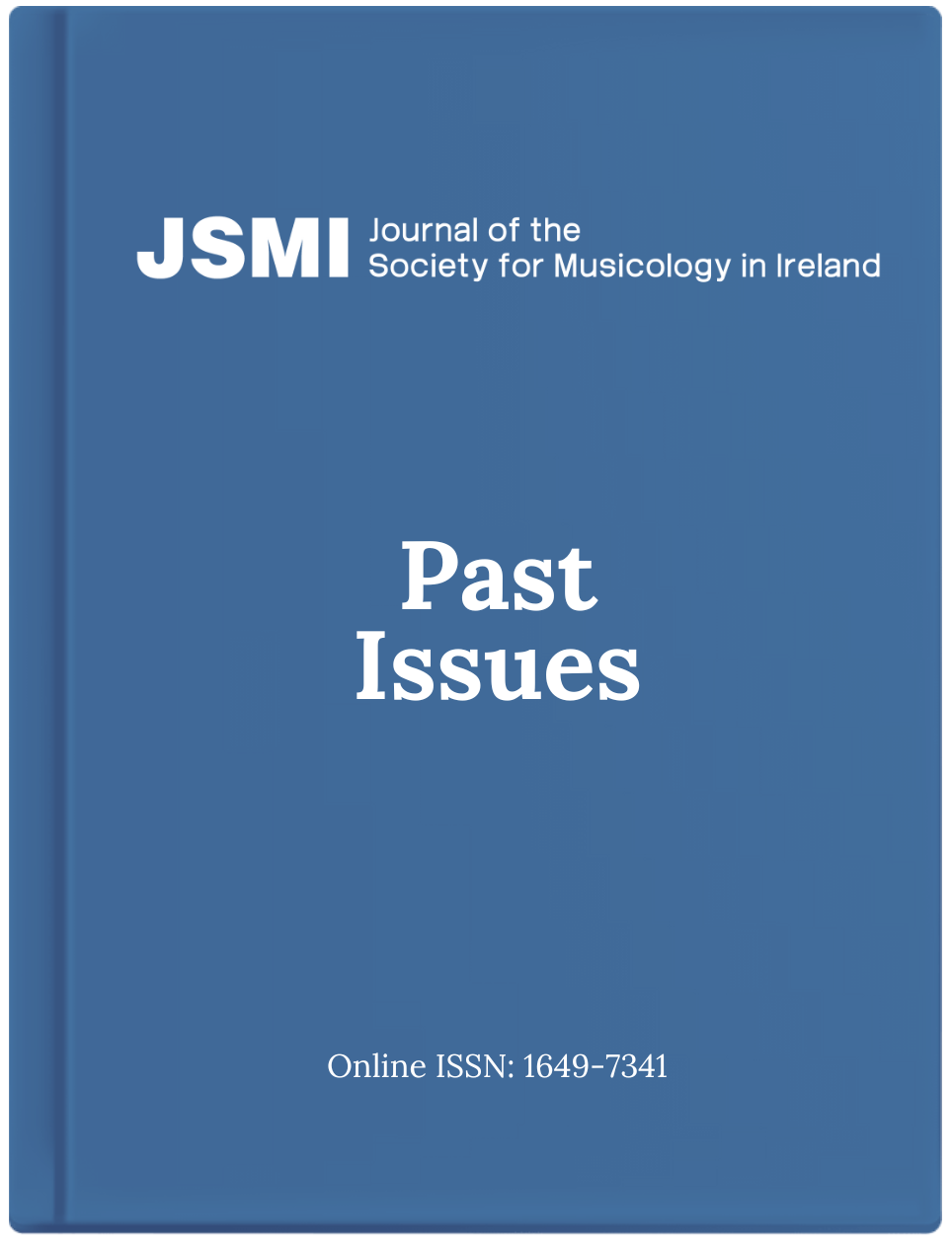The Influence of the Paris Stage on Kane O’Hara’s Midas
DOI:
https://doi.org/10.35561/JSMI12163Keywords:
opera, Rousseau, O'Hara, burletta, Dublin, Paris, borrowingsAbstract
Kane O’Hara’s English burletta, Midas (1762), combined many influences, borrowing its airs in the manner of the pasticcio or ballad opera and connecting them with recitative in the manner of opera seria, pantomime, and the masque. The main sources for borrowing are folk music, catches, pantomime, and English and Italian opera. Two airs from Jean-Jacques Rousseau’s opera (or intermède) Le Devin du village (1752) are perhaps the most surprising inclusion. O’Hara’s retention of these two airs in all versions of Midas, along with their rarity, points to their having a particular significance in relation to his purposes for Midas.
This article explores the awareness of French music and literature in Dublin in the middle of the eighteenth century. The circumstances of the composition and first performances of Midas and Le Devin du village are compared, and O’Hara’s settings of Rousseau’s airs are analysed and viewed in relation to Rousseau’s writings on music. The original performer of the two borrowed airs, Pierre Jélyotte, was the most celebrated singer at the Paris Opera in the middle of the eighteenth century: his association with the operatic romance, and the relevance of his other roles in relation to Midas, are investigated. Jélyotte’s vocal characteristics, his association with the guitar and his pastoral roles appear to be mirrored in Apollo’s disguise in Midas. This article proposes, indeed, that O’Hara’s borrowing of two airs from Le Devin du village reveals a more pervasive influence from the Paris stage than has hitherto been suspected.
Downloads
Published
Issue
Section
License
Copyright for articles and reviews published in this journal is retained by the authors, with first publication rights granted to the journal. By virtue of their appearance in this open access journal, articles are free to be used, with proper attribution, in educational and other non-commercial settings.
It is the responsibility of the author to secure (and, if necessary, pay for) written copyright permissions for the reproduction, in this online journal, of any illustrations, images, music notation, audio and video files, or any other copyright materials, that are included in the author's article.



